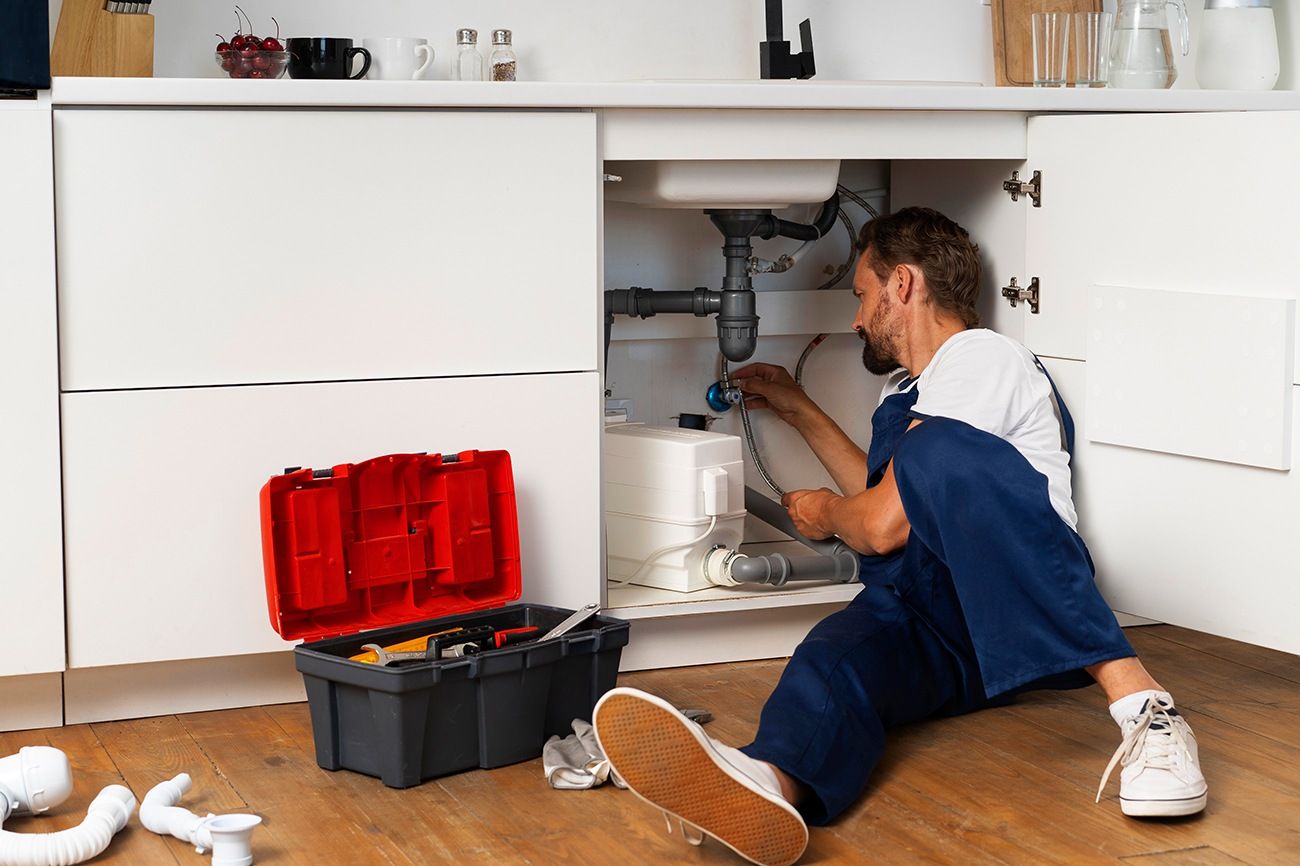Plumbing systems are easily overlooked in the daily rhythm of home life. Yet, they play a pivotal role in ensuring comfort, hygiene, and even the safety of our living spaces.
In this post, we'll explore the importance of maintaining a healthy plumbing system, its various types, its key functions, and the critical moments when enlisting a professional plumber becomes necessary.

-
The Lifeline of Your Home
At its core, a plumbing system is your home's unseen lifeline, responsible for the smooth flow of water in and out of your property. It ensures you have clean drinking, cooking, and cleaning water while safely disposing of waste water. A well-functioning plumbing system protects your home from all damage that can happen due to leaks, burst pipes, or backflow, safeguarding your property's value and your family's health.
-
Three Main Types of Plumbing Systems
-
Potable Water System
The potable water system brings water into your home from your service line, ensuring it’s pressurized correctly to travel through your faucets, showers, and any appliance needing water. This system includes all the pipes, fittings, meters, and shut-off valves associated with delivering clean water.
-
Drainage System
The drainage or waste disposal system removes waste water from your home. Components such as traps, vents, and drains work together to prevent sewer gases from entering your home, ensure proper drainage, and maintain the necessary air pressure in the pipes.
-
Stormwater Drainage System
Primarily found in areas prone to heavy rain, the stormwater drainage system manages rainwater, directing it away from your home's foundation to prevent flooding, water damage, and damp conditions. This system includes gutters, downspouts, drainage lines, and sometimes sump pumps.
-
-
Knowing When to Call a Plumber
While some small plumbing issues can be a DIY project, specific scenarios unequivocally require the expertise of a professional plumber. Here are a few instances:
-
-
Persistent Clogs:
Slow-draining sinks, showers, or clogged toilets that don't resolve with a plunger or over-the-counter drain cleaner could indicate deeper blockages or problems in your main sewer line.
-
Water Pressure Issues:
If you're experiencing consistently low water pressure throughout your home, it could be due to a leak, blockage, or problems with your municipal supply. A professional can diagnose and remedy the issue.
-
Leaky Pipes or Fixtures:
Small leaks can lead to significant water damage over time. A professional plumber can repair or replace the affected sections before more severe damage occurs.
-
Installation of New Appliances:
Properly installing appliances like dishwashers, water heaters, or any system connected to your water supply guarantees efficiency and compliance with local codes, which professionals are adept at handling.
-
Visible Signs of Water Damage:
The water stains on your ceilings and walls, peeling paint or wallpaper, or a musty smell could indicate a hidden leak, necessitating immediate attention from a plumbing professional.
-
Understanding the basic work of your home’s plumbing system, recognizing its vital importance, and knowing when to enlist the help of a professional can not only save you money in repairs but also preserve the integrity and comfort of your home. Regular checks and maintenance by a certified plumber can prevent minor issues from that can possibly turn into costly emergencies, ensuring that your plumbing system serves its purpose effectively and efficiently.
